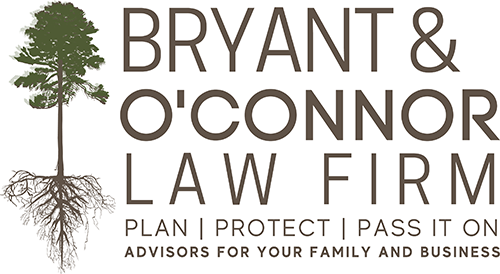As we navigate the complexities of asset protection and long-term care planning, we often encounter misconceptions. One such misconception is that gifting property is usually a good form of asset protection. Transferring assets directly to children is attractive to many people because it’s simple and cheap on the front end, but often it’s not financially beneficial in the long run. In this post, we’ll discuss why setting up an irrevocable trust specifically designed for Medicaid planning might be a more advantageous strategy.
The Drawbacks of Outright Gifts
Outright gifting may appear a straightforward and generous way to distribute your assets, but it does come with considerable downsides:
- Loss of ‘step-up’ in basis: If you gift an asset during your lifetime, the recipient receives your cost basis, potentially leading to higher capital gains taxes if they sell the asset. This contrasts with inheriting assets where the recipient gets a ‘step-up’ in basis, generally allowing them to sell the asset with fewer tax implications.
- Loss of control over distribution: Once you gift an asset, it belongs to the recipient. You lose control over who ultimately receives the property upon your death.
- Potential creditor claims: Assets you gift are immediately subject to the recipient’s creditors, lawsuits, divorce settlements, or other liabilities.
- Recipient’s discretion: After gifting an asset, the recipient isn’t obligated to use or maintain the property according to your intentions.
The Benefits of an Irrevocable Trust
Now, let’s explore how a well-drafted irrevocable trust can offer an alternative solution to the problem of asset protection in the context of long-term care planning:
- Control over asset distribution: Even though an irrevocable trust involves giving up your ownership rights, you still dictate who benefits from the trust assets upon your death.
- Asset protection: If funded early enough, assets in an irrevocable trust can be protected from being spent down for long-term care costs, safeguarding your wealth for future generations.
- Income rights: An irrevocable trust can be structured to provide you with income during your lifetime, though the income you receive would not be protected as much as the principal held in trust.
- Fiduciary duty of the trustee: The trustee is legally obligated to manage the trust and distribute assets according to the terms you set in the trust agreement.
- Potential for ‘step-up’ in basis: If drafted correctly, an irrevocable trust can reserve enough rights to grant a ‘step-up’ in basis at your death, saving your beneficiaries from substantial tax liability. When we say substantial, it could be tens or hundreds of thousands of dollars if you own significantly appreciated real estate.
Both strategies require navigating the Medicaid 5-year look-back rule, and thus any planning strategy needs to be timely. If you need to qualify for Medicaid next month, neither of these strategies will help you achieve that. Also both strategies involve irrevocable decisions, although an irrevocable trust allows for certain reserved rights.
You can probably guess that setting up and funding an irrevocable trust is more complex and requires a bigger investment than making an outright gift. But we’ve seen outright gifts be much more costly than the professional assistance involved in a proactive plan. If your circumstances align with the benefits of a trust, it can more than pay for itself in protected assets, tax savings, and probate avoidance.
At the Bryant & O’Connor Law Firm, we’re dedicated to providing honest, personalized guidance to help you navigate these complex decisions. We approach planning as an investment and aim to create strategies that will be financially beneficial for you and your family. Whether you’re considering gifting assets or setting up a trust, we’re here to ensure your estate plan aligns with your goals and maximizes your family’s financial wellbeing.
Please note: This article is for informational purposes only and does not constitute legal advice. We would love for you to schedule a planning session with us so that we can explore your objectives and identify a plan that works for you and our loved ones. We prepare both trust (revocable or irrevocable)- and will-based plans, depending on your priorities Our plans also include financial and health care power of attorney appointments.

